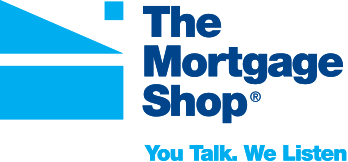A mortgage is the name given to a loan secured on property. It is usually used to buy the home although it is becoming more popular to consider a new mortgage, where the property is already owned, to access a more competitive mortgage product or to raise capital for other purposes, such as school fees or business investment. You may have to pay an early repayment charge to your existing lender if you re-mortgage.
A mortgage is a long-term loan and has traditionally run for a fixed period, typically 25 years. However most mortgages are flexible enough to allow for early repayment or, if your circumstances dictate, the term can be extended beyond the original load period.
Mortgages were once the preserve of building societies and the high street banks, however recently far more competition has entered the market and there is now a raft of lenders offering mortgage loans on residential property. This expansion in the number of lenders has led to a vast array of different loan packages.
Nowadays there are loan deals to suit most peopleís needs, whether you are buying your first home, a retirement cottage or perhaps an investment property.
Repayment
With a repayment mortgage, your monthly payments to the lender go towards reducing the amount you owe as well as paying the interest they charge. This means that each month you are paying off a small part of your mortgage.
Interest Only
These mortgages are now only offered with very strict criteria and are not available to everyone. With an interest only mortgage you only pay the interest charged on your loan, so you are not actually reducing the loan itself. You will need to have a feasible repayment strategy in place to repay your loan at the end of the term, for example investment and/or savings plans. Lenders will want to see proof of these.
Standard Variable Rate (SVR)
This is a standard interest that can go up or down in line with market rates, such as the Bank of Englandís base rate.
Discounted Rate
Some mortgages start with an initial interest rate set lower than the SVR for a set period of time. At the end of this period, the lender will change the interest rate to the SVR. It is a good idea to talk to your adviser at this stage because the lenderís SVR may not be the best deal available.
Fixed Rate
If you choose a fixed rate mortgage, your monthly payment will stay the same for a set period, usually two, three or five years. At the end of your fixed rate, your lender will usually change their interest rate to their SVR. It is a good idea to talk to your adviser at this stage because the lenderís SVR may not be the best deal available.
Tracker Mortgage
With a tracker mortgage, the interest rate charged by a lender is linked to a rate such as the Bank of England base rate. This means your payments may go up or down.
Offset Mortgage
An offset mortgage is generally linked to a main current account and/or savings account which are all held with the same lender. Each month the amount you oweis reduced by the amount in these accounts before working out the interest due on your loan. This means as your current account and savings balances go up, you pay less mortgage interest. As they go down, you pay more. Linked accounts used to reduce mortgage interest payments do not attract interest.
Capped and Collared Rate
With this type of mortgage, the interest rate is linked to a lenderís SVR but with a guarantee that it will not go above a set level (called a Ďcapí) or below a certain level (called a Ďcollarí) for a set period of time. It is possible to have a capped rate without a collar.
Your current income (which includes commission, bonuses, overtime Ė ie any additional income that is subject to tax) will determine how much you can borrow. Some lenders calculate borrowing ability by a straightforward multiple of your income while others will work out your net disposable income and then allow you to borrow a percentage of that. We will help you calculate how much you can borrow.
The answer to that depends on your own personal circumstances. If interest rates going up would leave you uneasy and feeling under pressure, it may be best to fix your mortgage for peace of mind. The benefit is that your monthly mortgage repayments are fixed for the duration of the fixed term so you can plan ahead without fear of rising mortgage repayments.
At the end of your chosen fixed rate term, you will normally revert to the lenderís standard variable rate but you may be able to choose another fixed rate from the selection available at that time. You may have to pay an early repayment charge to your existing lender if you repay your mortgage within the fixed rate period.
Yes, all lenders have different lending criteria, however you can borrow to fund the cost of building a property, subject to income. If you are looking to buy a site to build your dream home on, then this could be the way to do it. The maximum loan for this is up to 90% of the valuation and the funds would be released in stages.
